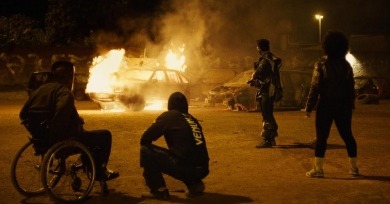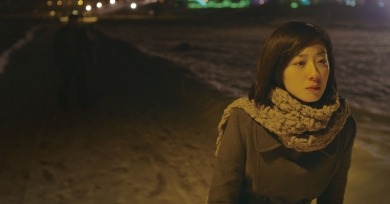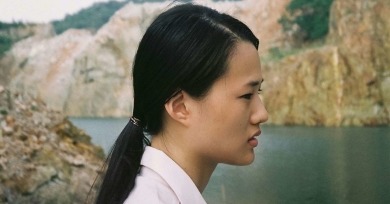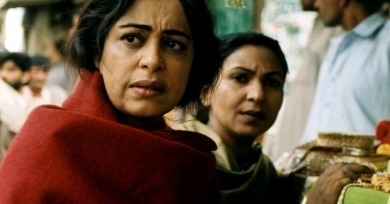15 Rising
Liu measures time through familial ritual, and her project is aligned with the work of Ozu and Akerman, tracking the process by which the passing hours accumulate into the passing of one generation into the next and onward into the flow of history.
There comes a point where the jokes fly so fast that what they are spoofing ceases to matter and they achieve a state of absurdity for absurdity’s sake to which most recent comedies have only aspired.
Once There Was Brasilia is a sci-fi epic about assassins from space and the impeachment of Brazilian President Dilma Rousseff, achieved on a shoestring budget.
A casual approach to queer sexuality, a presiding interest in the displaced self, a protean yet unshowy approach to film style: such qualities preclude the sort of press-release-ready bromides that accompany more commercially successful filmmakers of his generation.
As she relates the basic historical facts behind the international seed preservation project, the camera leads us through verdant Syrian fields, capturing the beauty of stalks swept by the wind. Again and again, Manna will mix sensuous imagery with more prosaic words.
The film is a brilliant instance of genre being deployed as a code that can transcend time and space: by referencing the recognizable features of classical film noir, the movie links two contexts that seem at first to be irreconcilable.
In this mephitic atmosphere, an assertion of the sanctity of simple domestic pleasures (of pleasure itself) is tantamount to an act of artistic resistance.
Rather than charting the trajectories of her characters towards enlightened maturity, Hittman asks them to feel their way through the emotional dark, guided by impulse, rerouted and misdirected by social pressures.
Seno has said that Nervous Translation emerged from her memories of growing up a reluctant child of the Philippine diaspora.
Her film understands the anxiety of trust, the pain of vulnerability, and makes literal the smothering feeling of being trapped in a Sisyphean cycle with a toxic friend.
Manjule is something of a modern-day pioneer, as a Dalit director making unabashedly caste-centric films that have acquired both critical and commercial acclaim.
The past is always present, but that does not just mean that it haunts or permeates our contemporary world: the past reconstitutes and recombines our very processes, internal and external, our molecules, our narratives.
A brutal, but immaculately balanced and ultimately empathetic effect gives Hogg’s films an almost overwhelmingly tangible sentimentality. Her depiction of inexpressiveness is deeply expressive. Her silences are unbearable and beautiful at once.
The oeuvre of Sabiha Sumar is essentially a feminist one, and more importantly, a Muslim feminist one. It is with this perspective that she questions, searches, and resolves.
He wraps grand metaphysical ideas in deeply human stories, letting viewers feel the imaginary. With his last two features, Lowery takes us into fantasy worlds yet supplies real questions to chew on.
We have been publishing Reverse Shot for 15 years, and when it comes to maintaining our optimism and enthusiasm for the medium we all ostensibly love, we have had our ups and downs. But things feel hopeful as of late, both in terms of filmmaking and in film criticism.















